Drafts by Riccardo Pinosio
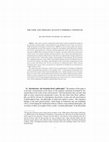
In this article we provide a mathematical model of Kant?s temporal continuum that satisfies the (... more In this article we provide a mathematical model of Kant?s temporal continuum that satisfies the (not obviously consistent) synthetic a priori principles for time that Kant lists in the Critique of pure Reason (CPR), the Metaphysical Foundations of Natural Science (MFNS), the Opus Postumum and the notes and fragments published after his death. The continuum so obtained has some affinities with the Brouwerian continuum, but it also has 'infinitesimal intervals' consisting of nilpotent infinitesimals, which capture Kant's theory of rest and motion in MFNS. While constructing the model, we establish a concordance between the informal notions of Kant?s theory of the temporal continuum, and formal correlates to these notions in the mathematical theory. Our mathematical reconstruction of Kant?s theory of time allows us to understand what ?faculties and functions? must be in place for time to satisfy all the synthetic a priori principles for time mentioned. We have presented here a mathematically precise account of Kant?s transcendental argument for time in the CPR and of the relation between the categories, the synthetic a priori principles for time, and the unity of apperception; the most precise account of this relation to date. We focus our exposition on a mathematical analysis of Kant's informal terminology, but for reasons of space, most theorems are explained but not formally proven; formal proofs are available in (Pinosio, 2017). The analysis presented in this paper is related to the more general project of developing a formalization of Kant's critical philosophy (Achourioti & van Lambalgen, 2011). A formal approach can shed light on the most controversial concepts of Kant's theoretical philosophy, and is a valuable exegetical tool in its own right. However, we wish to make clear that mathematical formalization cannot displace traditional exegetical methods, but that it is rather an exegetical tool in its own right, which works best when it is coupled with a keen awareness of the subtleties involved in understanding the philosophical issues at hand. In this case, a virtuous ?hermeneutic circle? between mathematical formalization and philosophical discourse arises. §1. Introduction: why formalize Kant's philosophy? The purpose of this paper is to provide a formalization of the theory of the temporal continuum developed by Im-manuel Kant in his works of the critical period. 1 Our formalization does not only shed light on some controversial interpretative issues, but also shows how Kant's philosophy can still be relevant for contemporary discussions on time and self-consciousness in philosophical logic, the philosophy of mind and cognitive science. This enterprise belongs to the more general project, which began in Achourioti and van Lambalgen (2011), of developing the mathematical theory of Kant's transcendental philosophy, and we believe it offers an example of how a really " scientific philosophy " in the Russellian 1 We adopt the following system of abbreviations for Kant's works: CPR stands for The Critique of Pure Reason , MFNS stands for the Metaphysical Foundations of Natural Science, OP stands for the Opus Postumum, and R stands for the reflections. Passages from the CPR are cited with their usual numbering from the A and the B edition, while all other passages are cited according to their volume and page number from the Akademieausgabe edition of the collected works of Immanuel Kant (Kant, Holger, Gerresheim, Heidemann, & Martin, 1908). The English translation of Kant's passages follows the Cambridge edition of the works of Immanuel Kant.
We aim to show that Kant's theory of time is consistent by providing axioms whose models validate... more We aim to show that Kant's theory of time is consistent by providing axioms whose models validate all synthetic a priori principles for time proposed in the Critique of Pure Reason. In this paper we focus on the distinction between time as form of intuition and time as formal intuition, for which Kant's own explanations are all too brief. We provide axioms that allow us to construct 'time as formal intuition' as a pair of continua, corresponding to time as 'inner sense' and the external representation of time as a line. Both continua are replete with infinitesimals, which we use to elucidate an enigmatic discussion of 'rest' in the Metaphysical foundations of natural science. Our main formal tools are Alexandroff topologies, inverse systems and the ring of dual numbers.
We aim to show that Kant's theory of time is consistent by providing axioms whose models validate... more We aim to show that Kant's theory of time is consistent by providing axioms whose models validate all synthetic a priori principles for time proposed in the Critique of Pure Reason. In this paper we focus on the distinction between time as form of intuition and time as formal intuition, for which Kant's own explanations are all too brief. We provide axioms that allow us to construct 'time as formal intuition' as a pair of continua, corresponding to time as 'inner sense' and the external representation of time as a line Both continua are replete with infinitesimals, which we use to elucidate an enigmatic discussion of 'rest' in the Metaphysical foundations of natural science. Our main formal tools are Alexandroff topologies, inverse systems and the ring of dual numbers.
Papers by Riccardo Pinosio
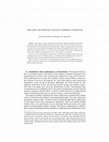
Review of Symbolic Logic, 2018
In this paper we provide a mathematical model of Kant's temporal continuum that yields formal cor... more In this paper we provide a mathematical model of Kant's temporal continuum that yields formal correlates for Kant's informal treatment of this concept in the Critique of Pure Reason and in other works of his critical period. We show that the formal model satisfies Kant's synthetic a priori principles for time (whose consistence is not obvious) and that it even illuminates what "faculties and functions" must be in place, as "con-ditions for the possibility of experience", for time to satisfy such principles. We then present a mathematically precise account of Kant's transcendental theory of time-the most precise account to date. Moreover, we show that the Kantian continuum which we obtain has some affinities with the Brouwerian continuum but that it also has "infinitesimal intervals" consisting of nilpotent infinitesimals; these allow us to capture Kant's theory of rest and motion in the Metaphysical Foundations of Natural Science. While our focus is on Kant's theory of time the material in this paper is more generally relevant for the problem of developing a rigorous theory of the phenomenological continuum, in the tradition of Whitehead, Russell and Weyl among others.
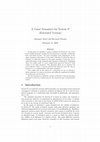
In this paper we introduce a game semantics for System P, one of the most studied axiomatic syste... more In this paper we introduce a game semantics for System P, one of the most studied axiomatic systems for non-monotonic reasoning, conditional logic and belief revision. We prove soundness and completeness of the game semantics with respect to the rules of System P, and show that an inference is valid with respect to the game semantics if and only if it is valid with respect to the standard order semantics of System P. Combining these two results leads to a new completeness proof for System P with respect to its order semantics. Our approach allows us to construct for every inference either a concrete proof of the inference from the rules in System P or a countermodel in the order semantics. Our results rely on the notion of a witnessing set for an inference, whose existence is a concise, necessary and sufficient condition for validity of an inferences in System P. We also introduce an infinitary variant of System P and use the game semantics to show its completeness for the restricted class of well-founded orders.
Lecture Notes in Computer Science, 2014

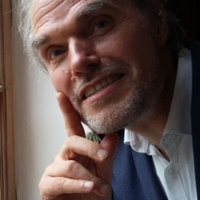






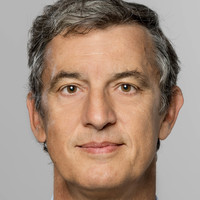
Uploads
Drafts by Riccardo Pinosio
Papers by Riccardo Pinosio